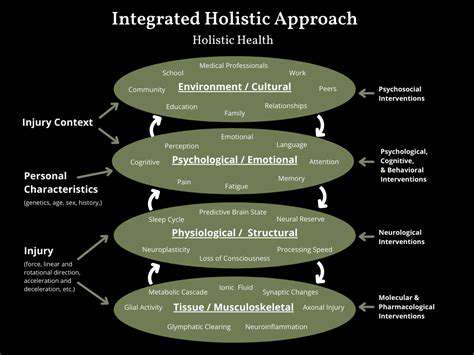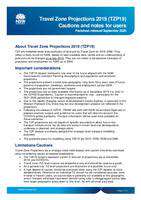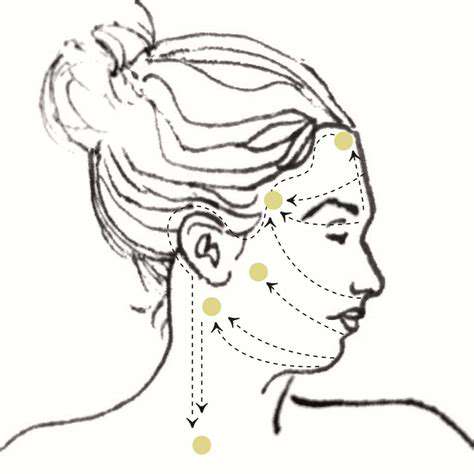Sleep Better with TCM: Natural Remedies
Identifying Underlying Imbalances for Improved Sleep Quality
Understanding the Root Causes of Sleep Disturbances
Sleep disturbances can stem from a multitude of factors, both physical and emotional. Identifying the underlying imbalances is crucial for developing effective TCM (Traditional Chinese Medicine) strategies. These imbalances can manifest as digestive issues, stress, anxiety, or even a lack of proper energy circulation within the body. By addressing these root causes, we can create a more holistic approach to achieving better sleep quality.
A thorough evaluation by a qualified TCM practitioner is essential to pinpoint the specific imbalances affecting your sleep. This might involve analyzing your diet, lifestyle, emotional state, and overall health history. Understanding the root causes allows for personalized treatment plans that target the specific needs of the individual.
The Role of Qi and Blood in Sleep
In TCM, Qi (vital energy) and Blood play a vital role in maintaining optimal health and sleep. Insufficient Qi can lead to fatigue and difficulty falling asleep, while insufficient Blood can cause restlessness and nightmares. These imbalances can arise from various factors, including stress, poor diet, and a lack of exercise. Addressing these imbalances through TCM practices can help restore the natural flow of Qi and Blood, promoting deeper and more restorative sleep.
The Impact of Organ Imbalances on Sleep
Different organs in the body are associated with specific times of the day and sleep cycles. Disruptions to the natural rhythm of these organs, as identified by TCM, can lead to sleep problems. For example, imbalances in the Liver, potentially influenced by stress or emotional issues, can manifest as insomnia or restless sleep. Identifying these imbalances and implementing appropriate TCM treatments can help restore harmony and promote better sleep patterns.
Dietary Considerations for Improved Sleep
Food choices significantly impact energy levels and sleep quality. TCM emphasizes the importance of incorporating foods that nourish Qi and promote relaxation. Avoid heavy, greasy, or processed foods close to bedtime, as these can disrupt digestion and lead to restless sleep. Instead, opt for light meals and foods that promote relaxation, such as warm milk or herbal teas. A balanced diet, tailored to individual needs, can significantly improve sleep quality.
The Importance of Emotional Well-being
Emotional well-being is intrinsically linked to sleep quality. Stress, anxiety, and other emotional imbalances can disrupt the body's natural sleep-wake cycle. TCM emphasizes the importance of emotional regulation and stress management techniques. By incorporating practices such as meditation, mindfulness, or gentle exercise, you can effectively address emotional imbalances and promote better sleep.
Lifestyle Factors and Sleep
Lifestyle habits play a crucial role in maintaining healthy sleep patterns. Consistent sleep schedules, regular exercise, and a relaxing bedtime routine are essential elements for optimal sleep. TCM emphasizes the importance of creating a conducive environment for sleep, including a quiet and dark bedroom and a comfortable sleep environment. Implementing these lifestyle adjustments, aligned with TCM principles, can significantly improve sleep quality.
TCM Treatments for Sleep Enhancement
Various TCM treatments can effectively address underlying imbalances and improve sleep quality. These treatments may include acupuncture, herbal remedies, and Gua Sha. Acupuncture can stimulate energy flow, while herbal remedies can nourish the body and promote relaxation. Gua Sha can help improve blood circulation and reduce muscle tension, contributing to a more restful sleep. A qualified TCM practitioner can tailor a treatment plan to address the specific needs of the individual.
Harnessing the Power of Herbal Remedies for Better Sleep
Understanding the Connection Between Herbs and Sleep
Traditional Chinese Medicine (TCM) emphasizes the interconnectedness of mind, body, and spirit. A disturbed sleep cycle can be a symptom of imbalances within this system, and herbal remedies, carefully chosen and administered, can help restore harmony and promote restful sleep. TCM views sleep as a crucial time for the body to repair and rejuvenate, and herbs are seen as tools to support this natural process by addressing the underlying causes of sleeplessness.
Exploring Popular TCM Sleep-Promoting Herbs
Many herbs are recognized in TCM for their sleep-promoting properties. Chamomile, for instance, is well-known for its calming effects, promoting relaxation and reducing anxiety, which are often significant factors contributing to sleep difficulties. Other herbs, like valerian root, are particularly effective at reducing stress and promoting a sense of calm before sleep, helping to ease the transition to a restful state.
The Role of Yin and Yang in Herbal Sleep Remedies
TCM's philosophy of Yin and Yang plays a crucial role in understanding how herbal remedies work for sleep. Yin represents the receptive, calming, and restorative aspects of the body, while Yang represents the active and stimulating aspects. Effective sleep remedies often target the balance between these two energies, promoting a state of harmony that supports restful sleep. Selecting herbs that promote a balanced Yin and Yang effect is key to their effectiveness.
Safety Considerations and Proper Usage
While herbal remedies can be beneficial for sleep, it's crucial to approach them with caution and respect. Consult with a qualified TCM practitioner before incorporating any new herbal remedies into your routine, especially if you have underlying health conditions or are taking other medications. They can assess your specific needs and recommend appropriate dosages and combinations to ensure safety and effectiveness. Always follow their instructions carefully.
Combining Herbs for Enhanced Results
Some TCM practitioners may recommend combining different herbs to create a synergistic effect for improving sleep. For example, combining chamomile with valerian root can amplify the calming and sleep-inducing properties of each herb. This approach allows for a more personalized and targeted approach to addressing individual sleep needs. However, always seek professional guidance to ensure the combination is safe and beneficial for your specific situation.
Lifestyle Factors Supporting Herbal Remedies
Herbal remedies for sleep are most effective when combined with a holistic approach to well-being. Maintaining a regular sleep schedule, creating a relaxing bedtime routine, and ensuring a comfortable sleep environment are all crucial factors that enhance the effectiveness of herbal remedies. A balanced diet, regular exercise, and stress management techniques further contribute to overall well-being and promote optimal sleep quality.











